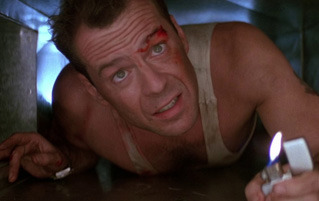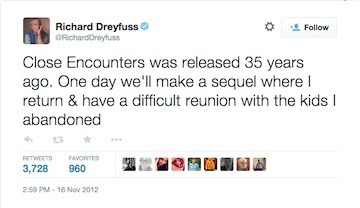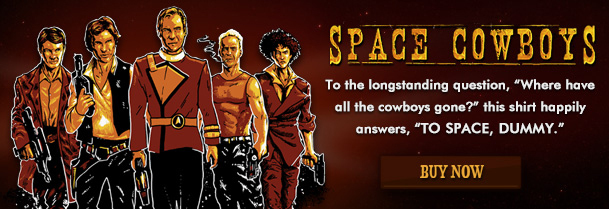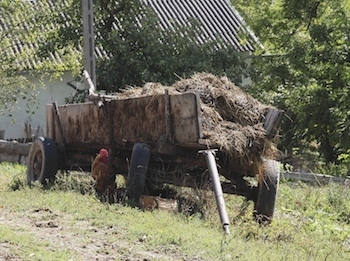5 Problems in Movies You Only Notice If You're Old

There's nothing quite as bittersweet as reliving the pop culture of your youth. On the one hand, childhood movies are a portal back to a time when you thought the world was fair and good and that dreams could come true. On the other, they'll make you realize that the dog puppet at the end of The NeverEnding Story wasn't really that scary at all.

I MENACINGLY FLAP MY MOUTH AT YOU.
Don't Miss
This isn't limited to movies you loved as a kid. As you pass college age and journey deeper into the dark, shrieking void known as "Pretending to Be a Responsible Adult," your old favorite movies change even more. For example, you'll start to notice that ...
Heroes Can Be Really Irresponsible
If you're like me, you routinely spend part of your annual Christmas season watching Die Hard. Also, if you're like me, most of those Christmases in the past have been spent cheering on the movie's hero, NYPD cop John McClane. (Yeah, kill those terrorists, John!) He's not one of those losers who sits around doing nothing while hostages are threatened or wants to negotiate like a tiny baby. Nope, McClane gets shit done and just starts killing -- the way you would if you were put into the same position.
How It Changes
But something starts to happen as one's Christmases come and go. Whether it's all of the real terrorist sieges you've seen play out on the news during your life or just your own experiences with life's unintended consequences, you start to ask: is John McClane really the good guy?

And what if my family really doesn't like my cranberry-and-garlic eggnog?
After he sees Hans Gruber's gang of terrorists executing a hostage, Mr. Takagi, McClane goes wild, picking off terrorists one by one and ignoring the pleas of the professional counter-terrorism experts to let them handle it. And, of course, McClane turns out to be right: the terrorists planned on killing all of the hostages, and his murder-actions are effective in saving them.
But step back from cinematic happy-ending conventions and ask: how easily could things have gone differently? What if Takagi was the only guy Hans and company planned on killing? How could McClane be sure that Hans wouldn't react to the dead terrorist in the elevator by executing random hostages every five minutes until McClane gave himself up? The terrorist siege could have just as easily ended with a lawsuit against the NYPD, with McClane in court and facing the tearful family of that woman whose boobs we see at the beginning, asking him why he taunted the terrorists into shooting their daughter in the head.

Sgt. Al Powell was tragically killed by a flying Christmas tape dispenser.
High School Movies Become Unbelievably Poignant
When looking at a lot of teen movies -- behind the dated fashion and awkward jokes about losing one's virginity -- you'll spot an underlying assumption: that the injustice of one's teenage years will somehow be automatically righted once your time in high school is over. The 1998 movie Can't Hardly Wait comes right out and says it: in the epilogue, the unpopular geek character becomes a supermodel-banging millionaire, while the cruel jock ends up overweight and working at a car wash.
Because I wasn't popular for most of high school, I took it for granted that movies like this had at least a grain of truth to them: once high school was over, I assumed, everyone's fortunes would change. The jerks would all be unsuccessful, while black-clad outcasts like me would finally get our time in the popularity zone. Everything would somehow right itself, thanks to this external force of teen-movie justice operating in the world. It was a life-size version of the gambler's fallacy.
How It Changes
There's no denying that sometimes this does happen. There are plenty of guys out there who peaked in high school and now make minimum wage unclogging the urinals at strip clubs, and plenty of formerly despised geeks who have servants helping them pick out which diamond cummerbund they're going to wear today.

"I'm so glad I patented my design for large bags with money signs on them."
But the sad truth is that just as often, the lack of confidence and/or social skills that screw you over in high school will screw you over in life as well. If you're popular and outgoing in high school, you're going to be popular and outgoing during job interviews. If you can't talk to someone you're attracted to without peeing yourself, people aren't going to suddenly stop caring about the pee stains once you graduate. If you're psychologically scarred from having your head shoved in a toilet in eighth grade, you might channel that anger into a successful career to prove yourself. But you might also descend into crippling alcoholism, while the jerk who bullied you becomes a millionaire from running a flourishing plumbing company.
It becomes impossible to watch those types of movies through anything other than your experienced adult eyes, and, suddenly, all of those movies you cherished as a doe-eyed teen become massive mounds of vapid horseshit -- every bit as unrealistic as Transformers or pizza-delivery-based porn.
Self-Journeying Protagonists Are Dicks
Movies are good at featuring protagonists who throw aside their normal lives to find adventure ... and themselves. The 1977 film Close Encounters of the Third Kind is probably the most extreme example of this plot: in this movie, a young suburban father ends up leaving behind his earthly family to go travel the universe with aliens, after which no one at all is impressed with the neighbor's really enlightening backpacking trip to India.
How It Changes
Director Steven Spielberg now regrets Close Encounters' ending, calling the decision to have the protagonist leave his family a "privilege of youth." Lead actor Richard Dreyfuss doesn't have a better opinion:

Both of these guys got older, had kids of their own, and realized that abandoning your family was in fact kind of dumb -- even if Adventure Aliens were involved. But, I don't think you necessarily need actual children in your life to make this jump: all it takes is a healthy dose of adult responsibilities, and the "happy endings" of movies like Close Encounters fall apart like a stack of mashed potatoes. You start finding yourself around things that actually need you, whether it's a spouse, a young child, an adorable puppy, a workplace, or just a stray cat in the neighborhood that no one else likes because it pees everywhere. Soon, you'll be yelling at your television set that the tortured, unfulfilled wanderer on the screen just needs to shut up and take a nice yoga class or something.
I first noticed I'd aged out of the "follow your bliss" team when I tried to watch Into the Wild last year. I know that the movie is based on a real person, Chris McCandless, and I can't comment on his personality or motivations. But Movie Chris? He comes across as an oblivious ass who has everything laid out on a plate and then throws it all away so he can experience living in an abandoned school bus.

Hobo Jerry lives in a school bus too, and he didn't even have to leave town.
That's not how the target audience sees him, though. As we've said here before, plenty of people think Chris is a freaking hero and even try to emulate him. Give those kids a few years though, and they'll watch the deep, "touching" scene where Chris burns all his money and think, "That could have paid somebody's overdue electricity bill, you freakin' jerk."

The Chosen One Becomes Insufferable
Watch The Matrix, The Last Starfighter, Star Wars, or any young-adult movie adaptation made in the last 20 years, and you'll see the same pattern: a young person is going about his boring life until he's approached by a wise older mentor who tells him that he's special. Surprisingly, the mentor character is not simply trying to get into the young person's pants: he is telling the truth.

"You should still take your pants off, though. The prophecy demands it."
Usually, the newly special character then finds himself immediately endowed with a power that would take the average non-special person decades to master -- if he could master it at all. These new powers allow him to achieve some super important saving of the world, and everyone cheers, including your young, innocent, movie-watching self.
How It Changes
I think the Chosen One trope only works if we're young enough to believe, on some level, that Becoming Really Special might one day happen to us. Sure, maybe we're not deluded enough to believe that we'll be taken by aliens and told we're needed to save the universe, but hey, at least one day, someone might come along and reveal a hidden secret power that allows us to guess the winning lottery numbers. Or get really good at basketball. Hell, something.

"This potion will allow you to perceive when you're about to tell a joke
and someone else will interrupt too early with the punchline."
As you get older and it becomes more apparent that your secret-revealing mentor is not going to appear, you start to identify more with the other people in these movies. How do they feel about being around a Chosen One who hasn't done a day of work for his powers, yet is effortlessly better than anyone? What is it like for one of those non-Chosen mooks in the background when Danny Protagonist effortlessly picks up a katana and makes lightning bolts come out of it with the power of his mind, but still complains to anyone who will listen that he just wants to be a normal boy? The Chosen One starts to look less like a natural hero and more like the type of person who whines to you about the dent in his Porsche while you're still driving a 2002 Honda with non-working air conditioning and a spider infestation.
Unthinking Violence Stops Existing
Action movies are largely aimed at the 18 to 25 age market. If you're in this market, you can probably watch scenes like this with joy and abandon.
And hey, some of us of all ages can watch Transformers movies with joy and abandon -- if we've taken enough acid and have run out of walls to stare at. But, for others, scenes like that slowly drain the life out of them as the march of time goes on.
How It Changes
If you're 18 years old and lucky enough to be living in a peaceful, prosperous, and first-world country, it's quite likely that your life so far has been relatively free of any disasters. But because we live in a vale of tears, this innocent existence soon fades away like the plot in a Michael Bay movie. We have seen or experienced enough trauma, or at least a realistic fear of trauma, to start feeling a deep, personal stab in the heart when we view certain events or characters on our screens. A friend or family member dies suddenly, and the random-extra-dying-to-show-the-situation-is-serious scene no longer seems quite so fun. Our home is damaged in a natural disaster, and we start fretting in Roland Emmerich movies when a tornado casually rips a city apart. We accidentally drive our cars into piles of manure a few times, and the driving-your-car-into-manure scene in Back to the Future becomes strangely heartrending.

My brother died that way.
So in the scene in that Transformers video, Adult You looks at the robots morphing in the middle of a busy highway and starts wondering: that random businessman passenger who we see lying injured on the highway -- does he recover? Does he suffer crippling flashbacks that tear apart his family? Did any of those bullets Bumblebee fired at the bad guys go off track and hit a random child? What about the people in the cars that flipped over? Is Shia LaBeouf's character haunted by their deaths when he wakes up at 3 a.m. every night, crying in pain from the serious whiplash injuries he suffered when Bumblebee grabbed him out of the air?
My personal "can't watch" element in movies is scenes that feature any type of threat toward military personnel, which rules out about 30 percent of action movies. You know that scene in the last Godzilla, where there were a bunch of Navy ships around the Golden Gate Bridge, and Godzilla was coming toward them and then a bunch of shit presumably happened? I have no idea what that shit was because I had to turn off the movie. It was making me too upset.

NO, GODZILLA, THEY HAVE FAMILIES!
Maybe you're not quite that bad because you're not the type of overly sensitive person who cries when your cat won't let you dress her up in a little bee costume. But, as you get older, it becomes more and more likely that you'll find yourself in a theater, wondering whether all of those Manhattan buildings damaged at the end of The Avengers are eventually going to give people cancer.
C. Coville has a Twitter here and a funny book on sale here.
For more from C. Coville, check out 6 American Characters in Foreign Films (Tested for Accuracy) and 5 Historical Wars That Need Movie Adaptations Now.
Are you on reddit? Check it: We are too! Click on over to our best of Cracked subreddit.